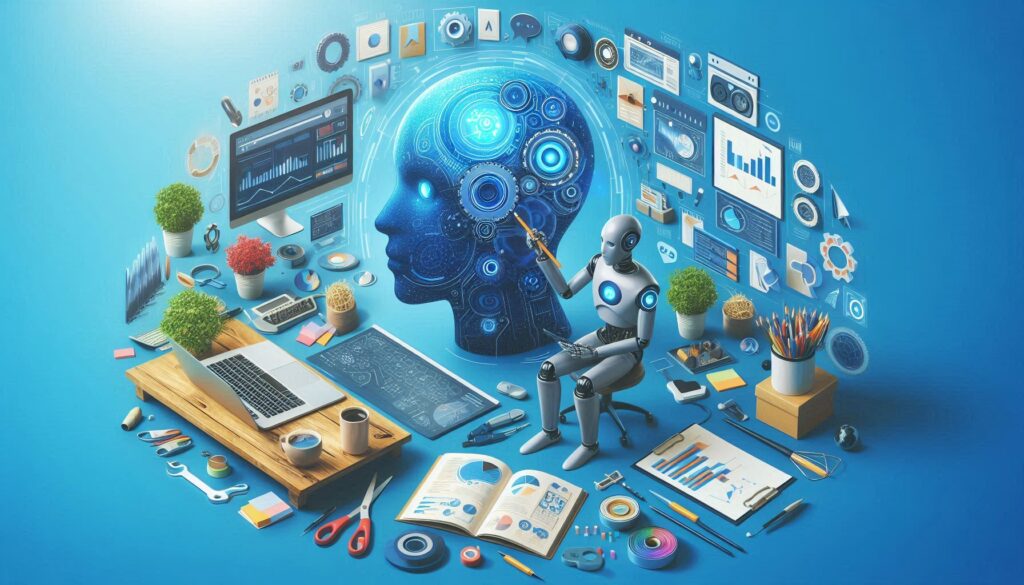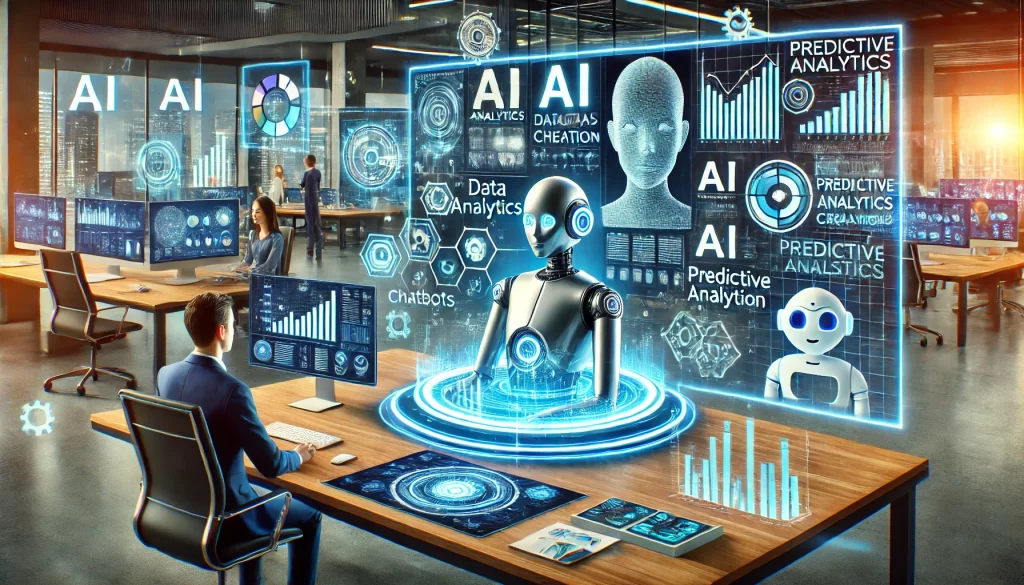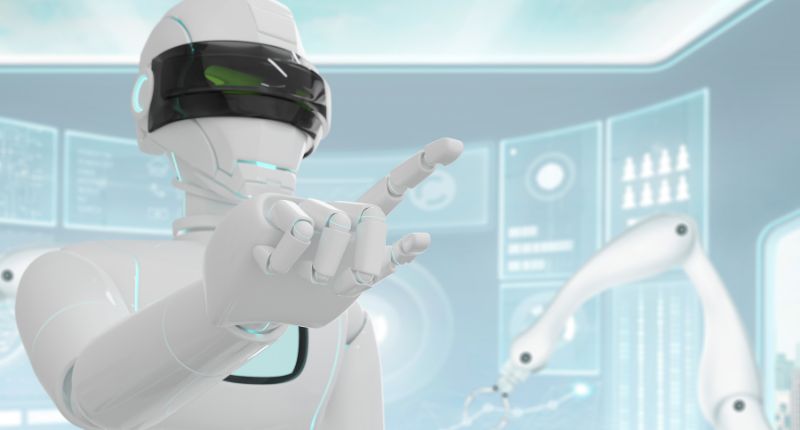In today’s fast-paced digital landscape, marketers are constantly seeking innovative ways to stay ahead of the competition. Enter artificial intelligence (AI)—a game-changer revolutionizing how businesses connect with audiences. From hyper-personalized campaigns to predictive analytics, AI is reshaping marketing strategies, making them smarter, faster, and more efficient. But how exactly can you leverage AI to drive success? In this comprehensive guide, we’ll explore the tools, strategies, and ethical considerations of AI in marketing, ensuring you’re equipped to thrive in this new era.
The Role of AI in Modern Marketing
AI isn’t just a buzzword; it’s a transformative force. Here’s how it’s changing the game:
- Data-Driven Decision Making
Traditional marketing relied on intuition. Today, AI analyzes vast datasets—think customer behavior, social media trends, and purchase histories—to uncover actionable insights. Tools like Google Analytics 4 use machine learning to predict user actions, helping marketers allocate budgets wisely. - Hyper-Personalization at Scale
Remember when Netflix recommended that show you couldn’t stop binge-watching? That’s AI-powered personalization. By analyzing user preferences, AI tailors content, emails, and ads to individual tastes. For instance, Spotify’s “Discover Weekly” uses AI to curate playlists, boosting user engagement by 30%. - Automation of Repetitive Tasks
Marketers spend hours on tasks like A/B testing or email scheduling. AI automates these processes, freeing time for creativity. Chatbots like Drift handle customer queries 24/7, while tools like HubSpot automate lead nurturing. - Predictive Analytics
AI predicts future trends by analyzing historical data. Retailers like Amazon use predictive analytics to forecast demand, optimize inventory, and recommend products, driving a 35% increase in sales for targeted campaigns.
Top AI Marketing Tools to Supercharge Your Strategy

Ready to implement AI? Here are the top tools across key marketing categories:
1. Content Creation & Optimization
- Jasper.ai: Generates blog posts, ad copy, and social media content in seconds. Perfect for scaling content marketing.
- SurferSEO: Combines AI with SEO best practices to optimize content for search engines. It analyzes top-ranking pages and suggests keyword usage, structure, and length.
- Grammarly: Uses AI to enhance writing quality by checking grammar, tone, and clarity.
2. Social Media Management
- Hootsuite Insights: Tracks brand mentions and sentiment across platforms using natural language processing (NLP).
- Lately: Auto-generates social posts from long-form content (e.g., blogs or podcasts), saving hours of work.
- Canva’s Magic Design: Creates visually appealing social media graphics with AI-driven templates.
3. Email Marketing
- Phrasee: Crafts subject lines and email copy that boost open rates. Its AI tests language patterns to find what resonates.
- Persado: Generates emotionally engaging email content tailored to your audience’s preferences.
4. Advertising & PPC
- Google Smart Bidding: Uses machine learning to optimize bids for conversions or value in real-time.
- AdEspresso: Analyzes ad performance and suggests tweaks to maximize ROI.
5. Customer Insights & CRM
- HubSpot AI: Predicts lead scores, segments audiences, and personalizes outreach.
- Salesforce Einstein: Delivers AI-driven insights for sales forecasting and customer service.
Proven AI Marketing Strategies for Success
Having the right tools is half the battle. Here’s how to deploy them effectively:
1. Leverage AI for Deep Customer Insights
Use tools like Crayon or Brandwatch to monitor competitors and track consumer sentiment. AI can identify emerging trends—like a sudden interest in sustainable products—allowing you to pivot strategies swiftly.
Example: A beauty brand uses AI to analyze social media chatter, discovering a surge in “clean beauty” searches. They launch a vegan product line, capturing 20% of the market within months.
2. Personalize Every Interaction
Segment your audience using AI-driven platforms like Dynamic Yield. Send personalized product recommendations via email or display dynamic website content based on user behavior.
Case Study: Starbucks’ AI-powered app recommends drinks and food based on past orders, weather, and location. This personalization drove a 150% increase in app engagement.
3. Optimize Content for SEO & Readability
Tools like Clearscope and MarketMuse analyze top-performing content and suggest keywords, headings, and semantic terms. Pair this with AI writing assistants to maintain a natural tone.
Pro Tip: Use AnswerThePublic to find questions your audience is asking. Create blog posts answering these, optimized with AI for maximum reach.
4. Automate Campaign Management
Platforms like Acquisio automate ad bidding and budget allocation across Google, Facebook, and Instagram. AI tests thousands of ad variations to find top performers.
5. Enhance Customer Support with Chatbots
Deploy AI chatbots like Intercom or Zendesk to handle FAQs, book appointments, or troubleshoot issues. This reduces response times by 80% and improves customer satisfaction.
Challenges & Ethical Considerations
While AI offers immense potential, it’s not without hurdles:
- Data Privacy: GDPR and CCPA require transparent data usage. Always obtain consent and anonymize customer data.
- Bias in Algorithms: AI can perpetuate biases if trained on flawed data. Regularly audit algorithms for fairness.
- Over-Automation: Striking a balance between automation and human touch is crucial. Use AI for tasks like data analysis but keep creative decisions human-led.
The Future of AI in Marketing
The AI revolution is just beginning. Future trends include:
- Voice Search Optimization: As smart speakers proliferate, optimizing for voice queries will be key.
- AI-Generated Video Content: Tools like Synthesia create videos from text scripts, ideal for personalized product demos.
- Advanced Predictive Analytics: Expect AI to forecast trends months in advance, enabling proactive campaigns.
Conclusion
AI in marketing isn’t a distant future—it’s here, and it’s reshaping the industry. By leveraging the right tools and strategies, you can unlock unprecedented efficiency, personalization, and ROI. Start small: experiment with AI-driven chatbots or content generators, then scale as you gain confidence. Remember, the goal isn’t to replace humans but to empower them. Stay ethical, stay curious, and let AI handle the heavy lifting while you focus on what matters—building genuine connections with your audience.


